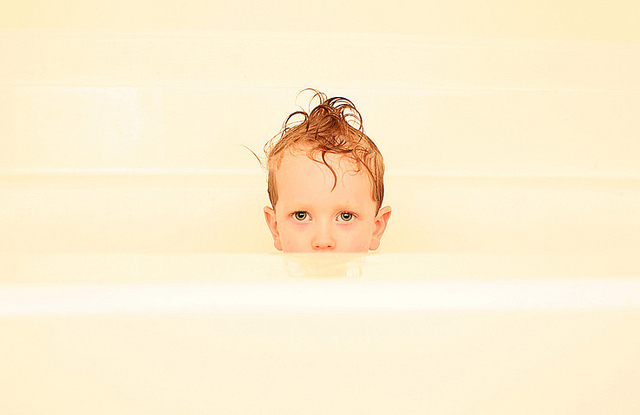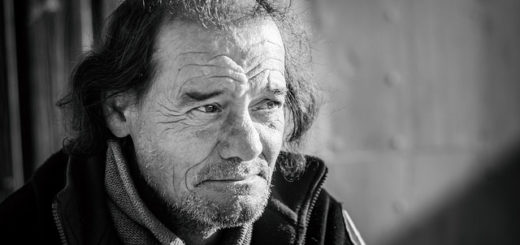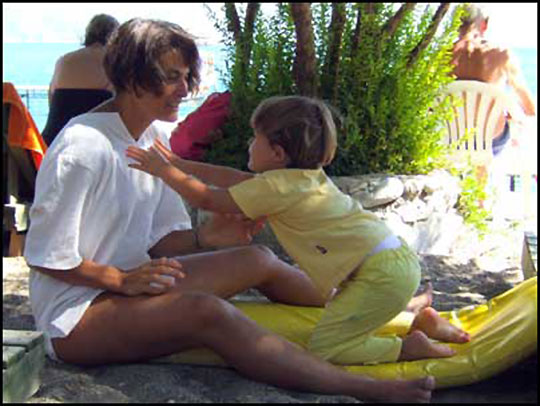Help For Parents Whose Kids Tell Lies
An Analysis of Lying Through The Developmental Stages of Children – A Help Guide for Parents
Recently in few of the families who consult with me the theme of lying has arisen. Often parents worry about their children and don’t know what to do about it. This week I am talking about why lying is part of a normal growth process, why it happens and how to teach kids honesty from the beginning.
Why Do The Kids Lie? Why Do We Lie?
The reasons why children and adults lie are similar:
– We lie in order to get out of trouble, such as avoiding being told off for breaking mum’s favourite plate.
– Another reason is to derive a personal benefit. A school age child may say I have homework I need to do with my friend in order to go to see my friend rather than visit relatives.
– I often observe siblings lie to protect one another out of solidarity.
– Some young people tell lies about their abilities and successes to impress others.
– When father is at home drunk the child might lie to the friends about why they cannot visit his home in order to cope with the difficult reality of his life.
– A child may be experimenting with independence when they say they are studying in their rooms when they are playing a computer game.
– There are times people tell lies in order to boost another person’s feelings, such as when a seriously ill person asks you how they look, you may temper down and say something like ‘You don’t look as bad as you feel.’
Lying Through Developmental Stages
Kids experiment with the truth at a young age, and they continue to do so through all the
developmental stages. Parents need to approach in age-appropriate ways to these
experimentations.
Children between 1and 3 develop their ability for speech and movement whilst exploring being independent. At the same time their understanding of truth is also very confused as they cannot yet differentiate between fantasies, wishes and reality. Strong emotions easily accompany untrue comments. Your child is not so much lying as playing with alternative realities to discover which are most acceptable.
Tips For the Parents Of Toddlers To Teach Truthfulness
I know of a toddler who wet the bed at night and the following morning said: ‘It is not me, it was my cousin who peed.’ They do not have the concept of a lie in their minds. Therefore these toddlers need to be helped to recognize the reality of the situation, and have no fears about it.
A sentence like this would work well for this little girl: ‘You think so? Look at your bed and your pyjamas. Aren’t they wet? I think it must be you, since you slept in this bed last night.’ Then you can encourage her very gently towards the right speech with stories and examples.
Tips For the Parents Of 4 to 8 Year Olds To Teach Honesty
Between 4 and 8, as the verbal abilities and mental capacity improve, kids discover their ability to hide or distort the truth to fit with their desires. They may answer ‘yes’ to a question like: ‘Have you brushed your teeth? And, they can easily say ‘I have none’ to the question: ‘What homework have you been given?’ At this stage of the child’s development the demands of the environment on the child increases. When these demands become too much for the child he or she may use lies as a way of avoiding ‘unnecessary’ burdens. Kids also experiment with lies as a newly discovered skill to explore the consequences of doing so.
This is the stage adults in the kids’ life need to clarify at every opportunity, very openly, the difference between the truth and a lie. Firmly, briefly and respectfully explain why a lie is bad. Statements such as these would help: ‘That does not sound right, are you sure?’ ‘I think may be fibbing, your brush isn’t even wet.’ ‘Telling lies is not good because people, after a while, cannot trust those who lie.’
Tips For the Parents Of 9 to 12 Year Olds To Teach Honesty
As your child approaches adolescence their need of privacy usually increases. Over involved and controlling parents find their children need to hide or distort some aspect of their experiences to separate from you. Check out if you give your child enough freedom to play and socialise. Often educational requirements lead parents to overlook their children’s normal growth needs.
Continue providing evidence for why honesty is most often the best option even when it is difficult to tell the truth. You need to monitor your responses to validate this statement by staying calm when the truth is upsetting for you.
Clear definitions of the rules, limits and consequences with explanations why they are there may set the stage for adolescence. It is important that you do what you can to protect your child’s ability to talk to you and create an environment of mutual trust.
When you catch your child lying, stay calm. Remember, often it is not personal; it is part of normal growing process. You may remove a privilege as a consequence; discuss it with your child if it is reasonable.
Mistakes Parents Make About Lying
There are few mistakes I observe carers make when they are faced with their children’s lies:
1) Overreacting is one mistake that frightens the child and damages your relationship with each other. An emotionally charged reaction that does not fit the situation simply leads to more lying in the future. It makes it even more difficult for your child to tell the truth when the truth is bitter for them. Punishing your child will not help.
2) Taking it personally as a sign of disrespect misses the opportunity to teach calmly about pros and cons and setting boundaries about what is acceptable.
3) Some parents label the kid and project disaster to their future by saying something like this: ‘You are a liar, you only think of your personal interest without considering others; you will never be loved by anyone.’ This is unfortunate as the child has little choice but to believe the parent and comply with the predictions. They would need to rebel against them to be an honest person. In any case the parent will have soured the relationship.
4) Some adults lie openly whilst expecting honesty from their kids. Statements like ‘Tell them I am not home, I am too tired to talk’ set bad examples. Parents can’t have double standards; children learn by modelling other adults, especially their parents.
When Should Parents Seek Professional Help for Their Child’s Lying?
Your needn’t worry over a few isolated half but if your child’s lying is combined with a history of other aggressive behavior, stealing, etc. and if he continues to lie regularly even after you’ve spoken with him about it, you may need to seek professional help.
In addition, if your child consistently lies in certain ways they may have an emotional problem that needs addressing. Consider seriously consulting a mental health professional if your child has one of the following problems:
- If an 8 year old continuously tells elaborate untrue stories as if they were true it may be a signal for attention that needs to be looked at with a professional.
- If a child lies consistently instead of telling the truth without any clear reason it may be that they cannot tell right from wrong. A therapist might need to help the child to develop a conscience as well as help the family with any family or socialization problems that might be undermining the child’s emotional development.
- If lying is covering up a serious problem such as abuse or some addictions for adolescents professional help need to be sought to address the roots of the emotional problems leading to this behavior.
- If a child does not experience any sorrow or guilt for lying or taking advantage of others carers should ask advice from a professional. .
I would like to conclude by reminding carers to encourage kids telling the truth by praising them especially even when it is difficult for them.
Do you have stories to share about lies and deception? If so please leave a comment below. And, remember, if you’re worried about a child because they aren’t always telling the truth a quick telephone call with me may help you to decide if the problem is serious. Call me today, on +90 538 912 33 36, if you have concerns.
Attribution 2.0 Generic (CC BY 2.0)image:U.S. Army





